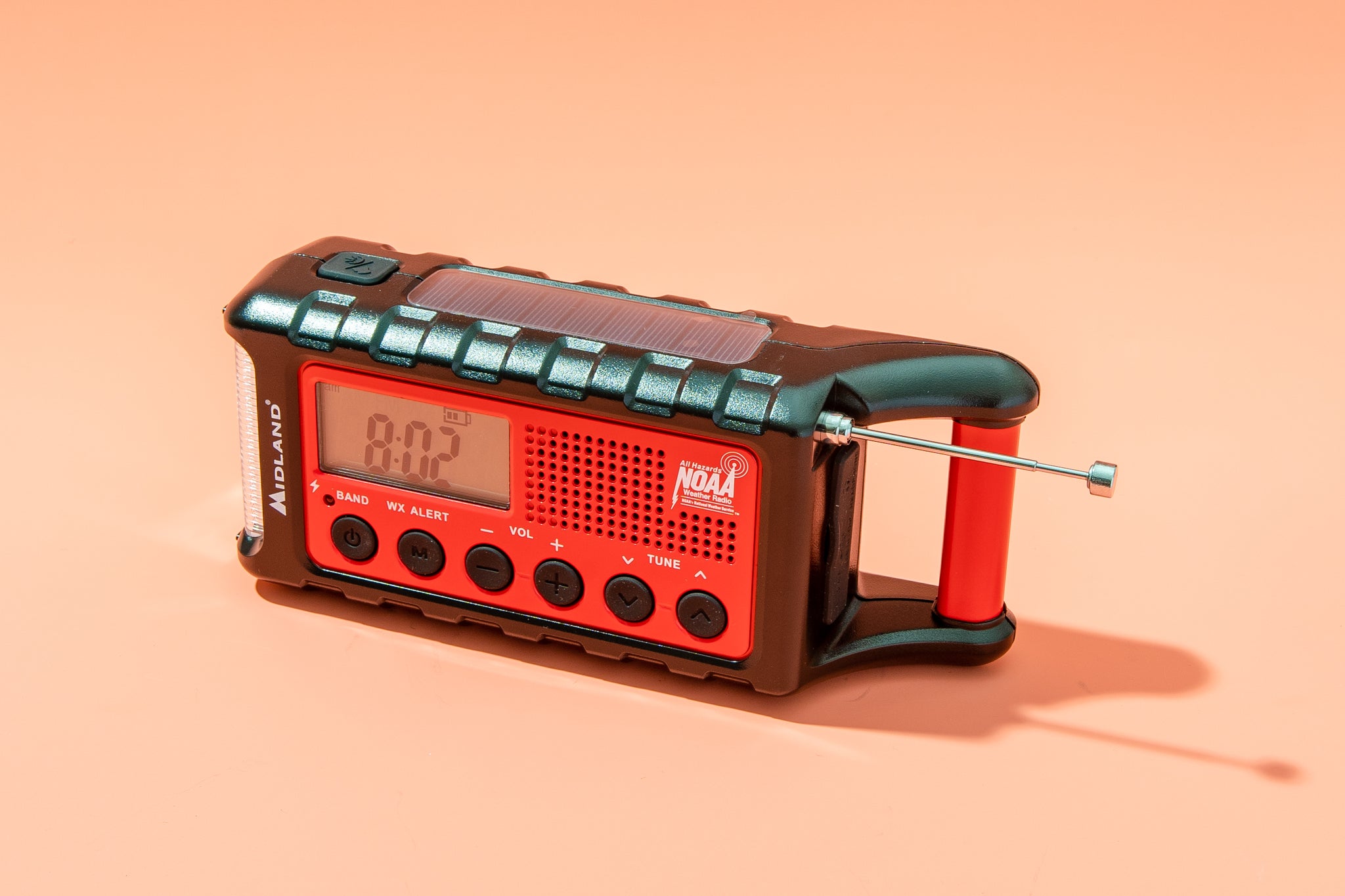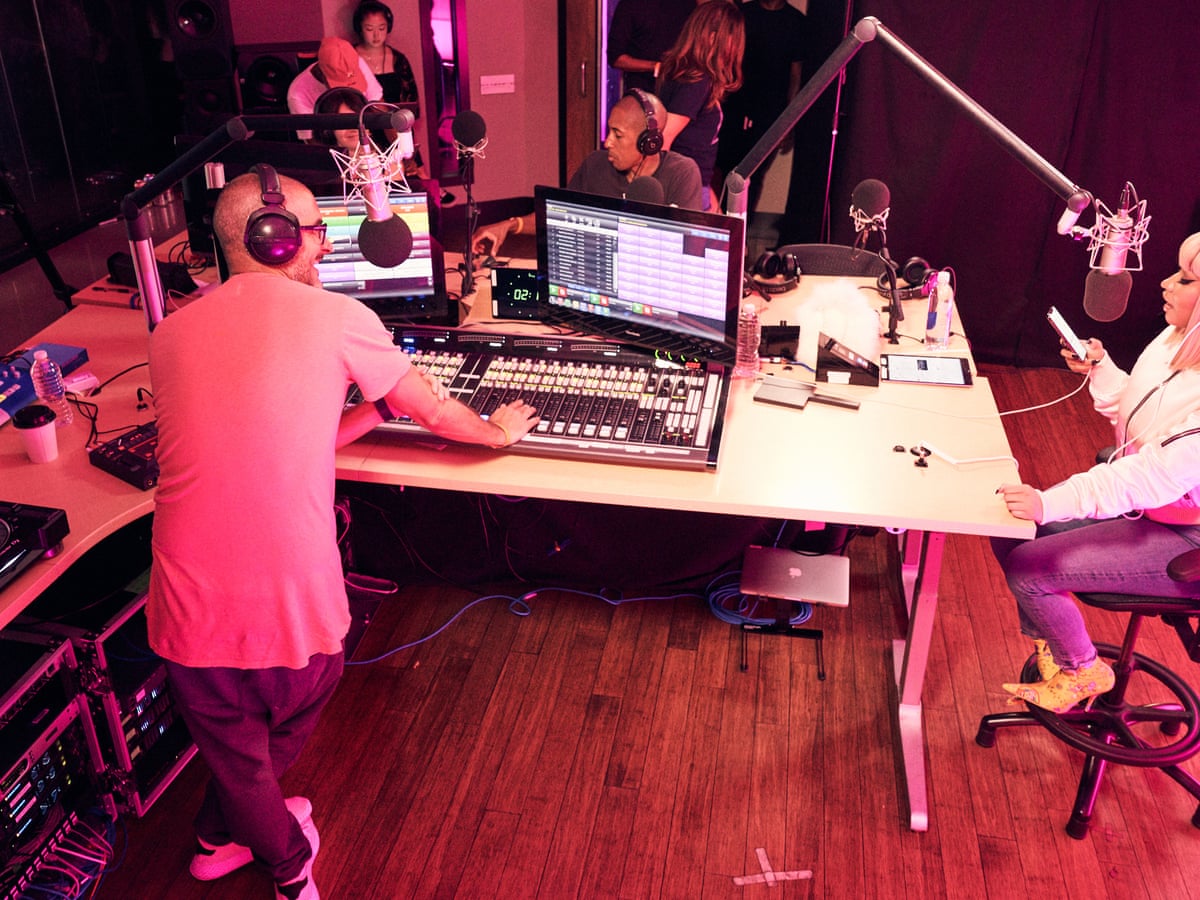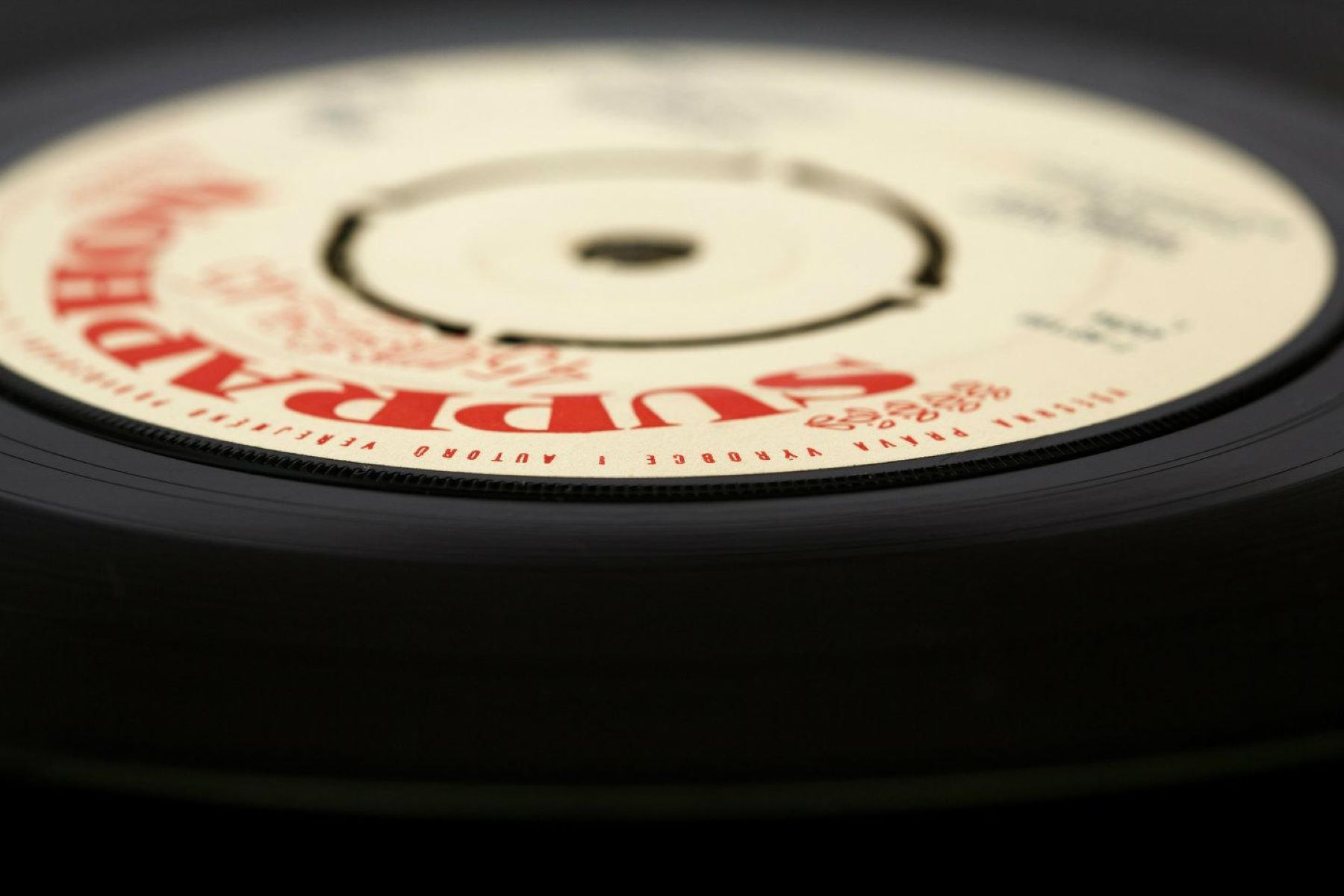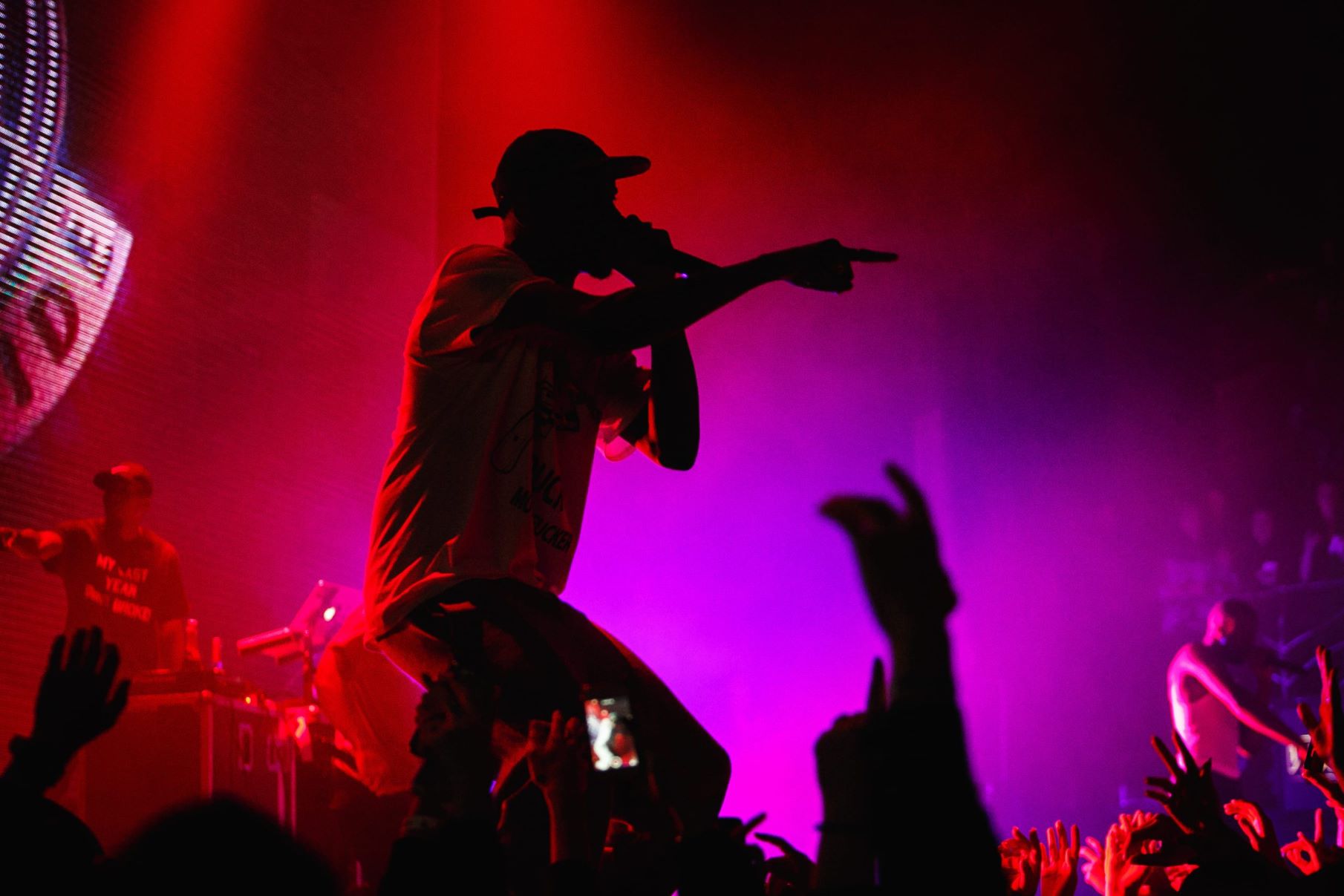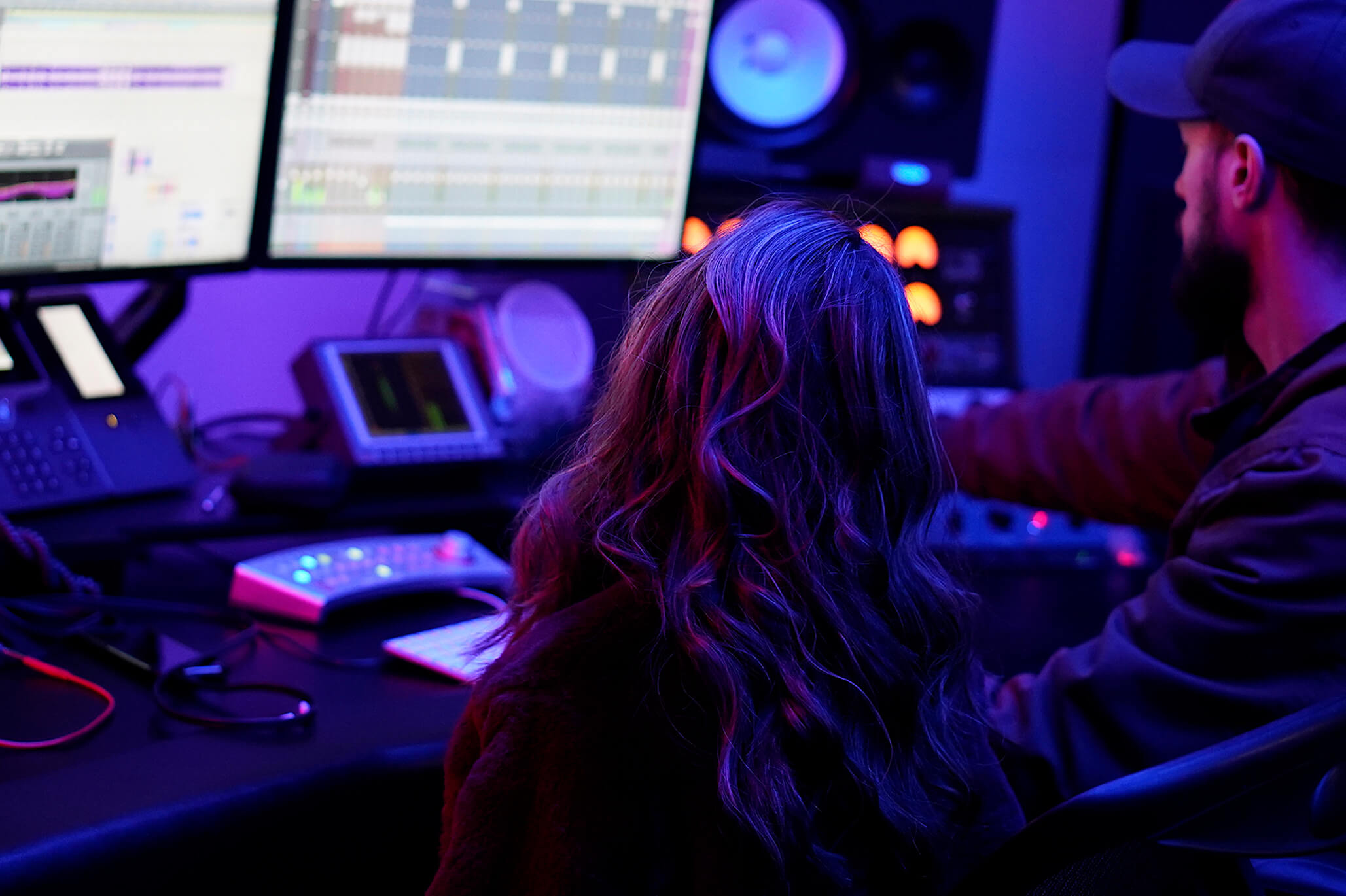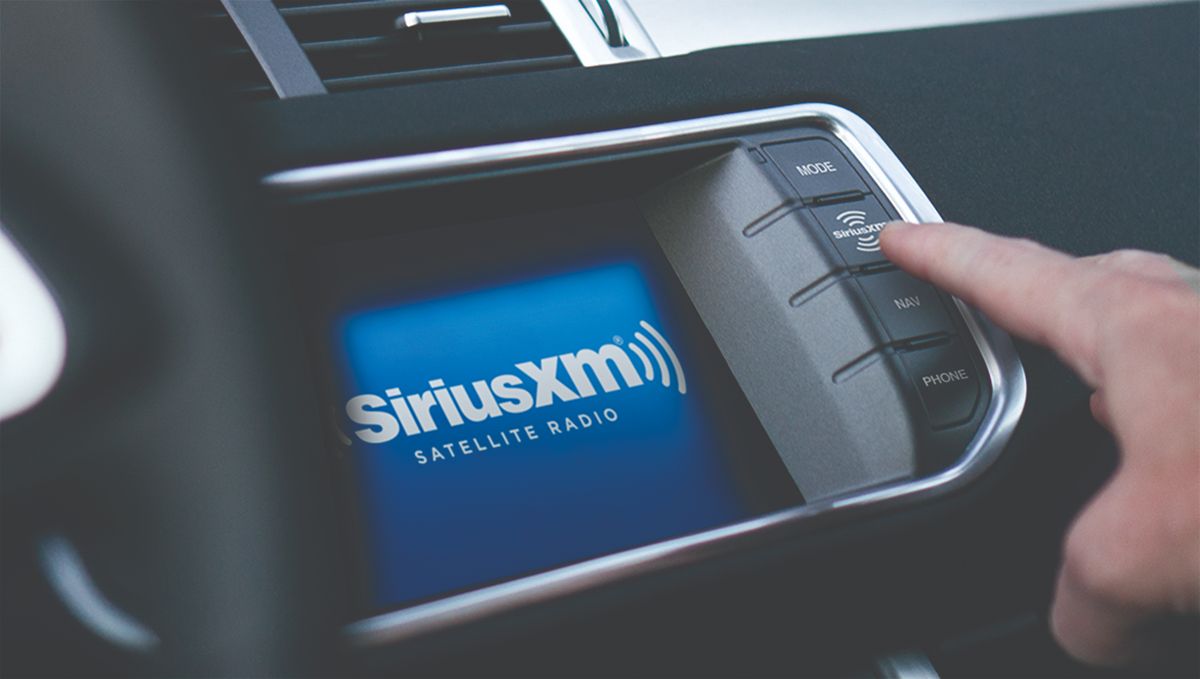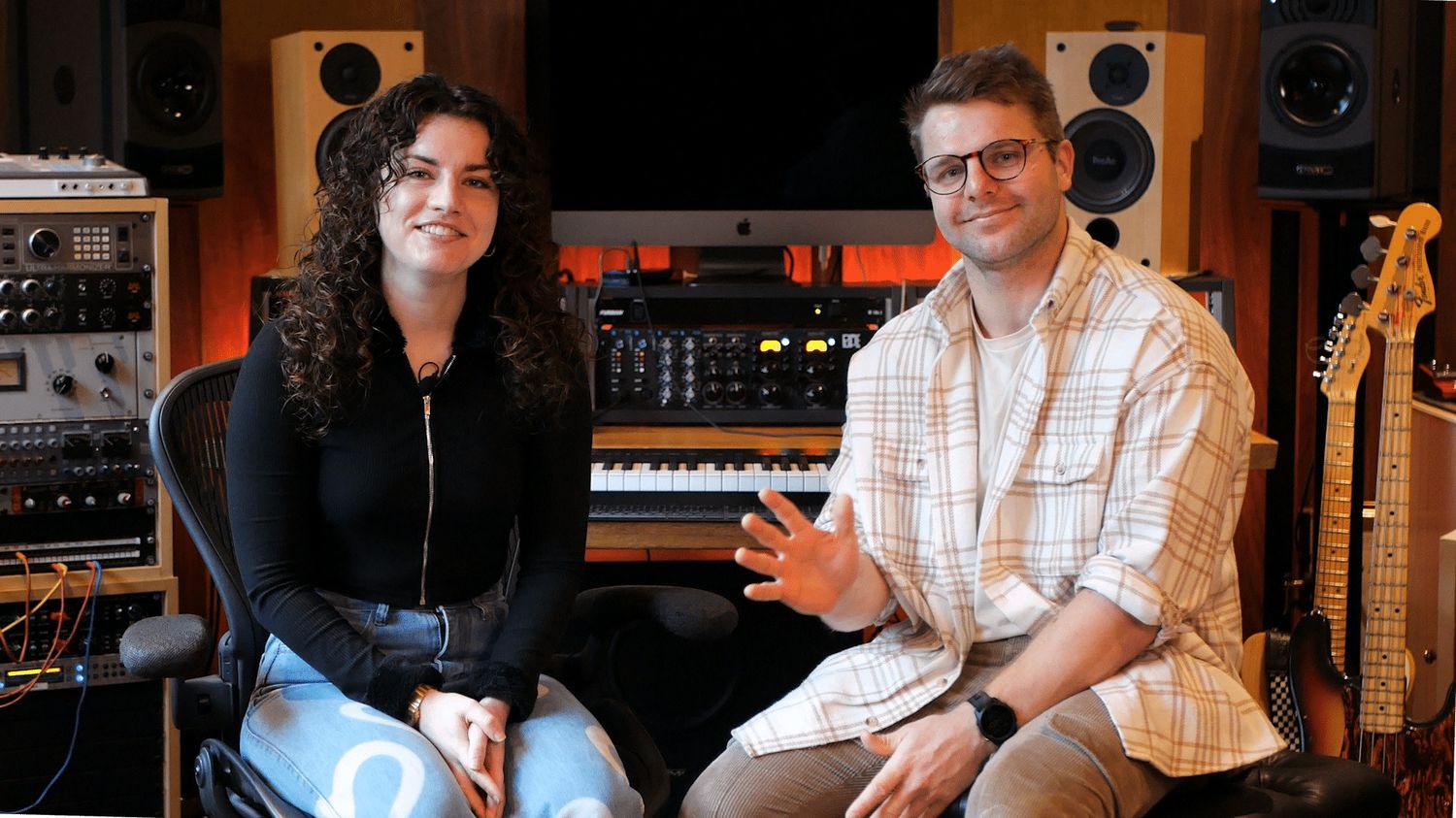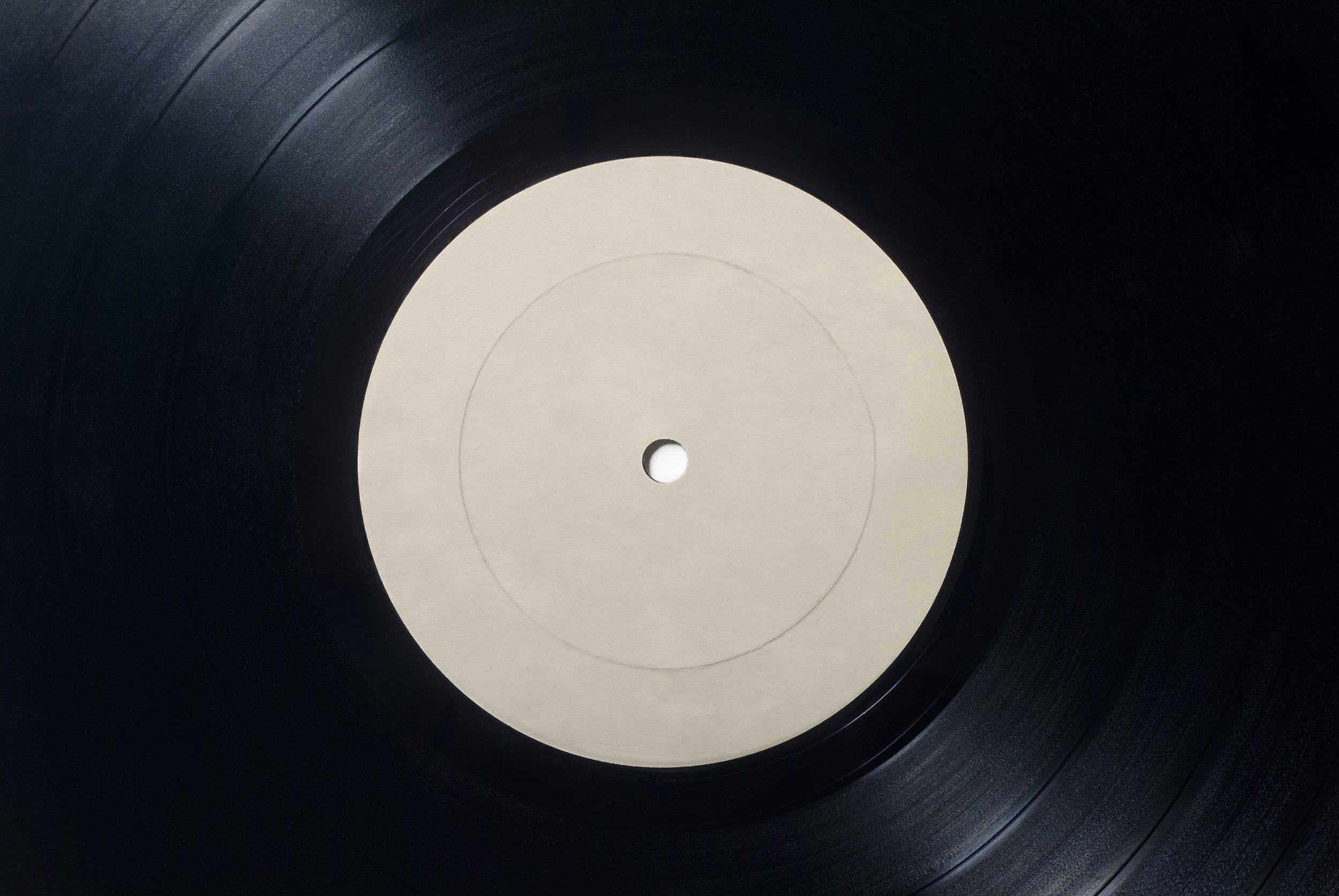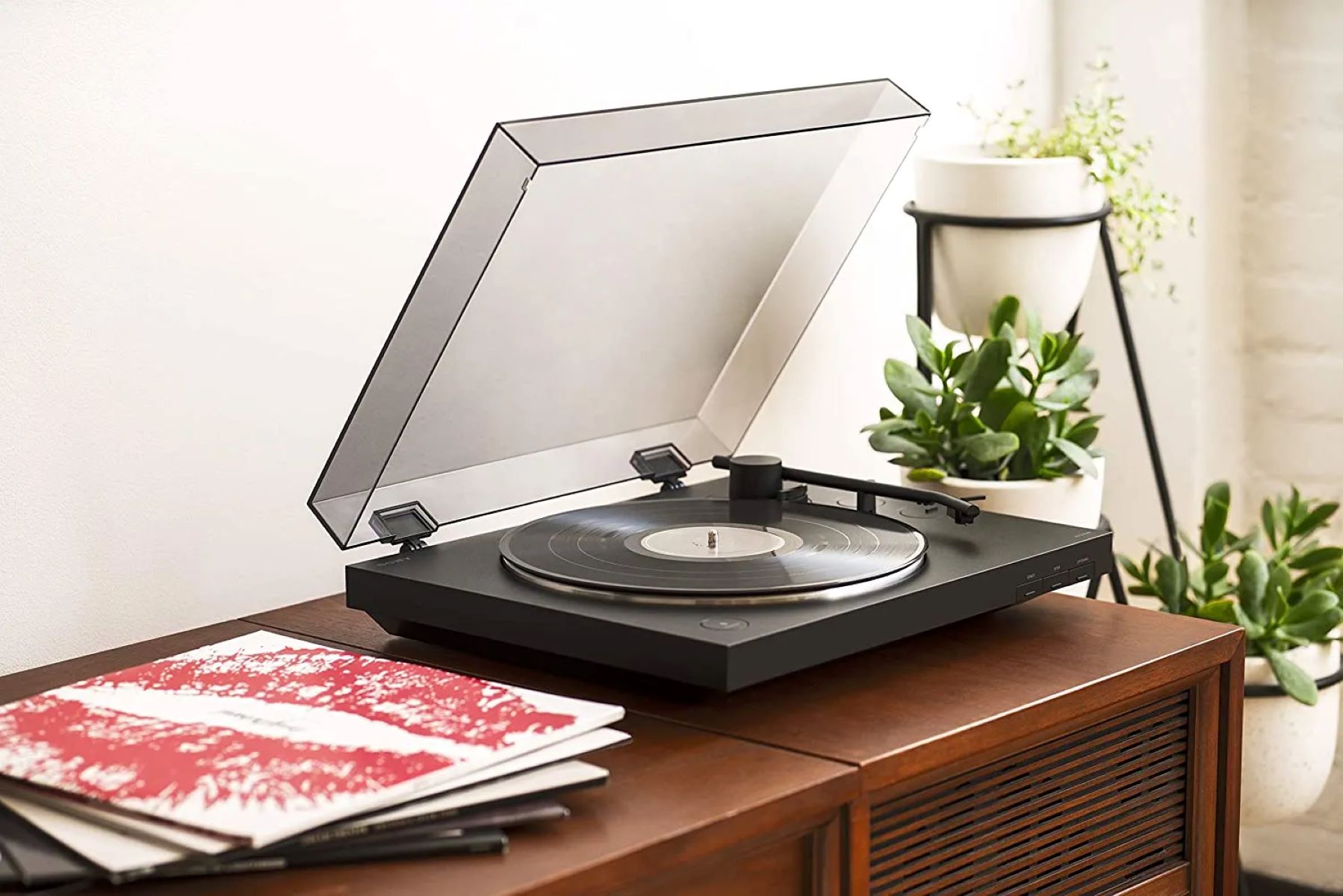Home>Production & Technology>Record Label>How Can I Get On The Radio Without A Record Label


Record Label
How Can I Get On The Radio Without A Record Label
Published: January 24, 2024
Learn how you can get your music on the radio and gain exposure without the support of a record label. Discover proven strategies and tips to increase your chances of success in the music industry.
(Many of the links in this article redirect to a specific reviewed product. Your purchase of these products through affiliate links helps to generate commission for AudioLover.com, at no extra cost. Learn more)
Table of Contents
- Introduction
- Understanding the Radio Industry
- Building a Solid Fan Base
- Creating High-Quality Music
- Building Relationships with Radio DJs
- Submitting Your Music to Radio Stations
- Promoting Your Music Independently
- Utilizing Online Platforms and Social Media
- Engaging with Fans and Building Buzz
- Collaborating with Other Artists or Producers
- Networking and Attending Industry Events
- Conclusion
Introduction
When it comes to making a mark in the music industry, getting your music on the radio can be a game-changer. The exposure and reach that radio provides can catapult your career to new heights. But what if you don’t have the backing of a record label? Can you still get on the radio? The answer is a resounding yes! With the right strategies and determination, you can successfully navigate the radio industry and get your music heard by millions of listeners.
While having a record label can certainly open doors and provide resources, it is by no means a prerequisite for radio success. In fact, many independent artists have found great success on the radio without the support of a label. The key lies in understanding the industry, building a solid fan base, creating high-quality music, and establishing relationships with radio DJs and stations.
In this article, we will dive into the world of independent radio promotion and explore various strategies that can help you get your music on the airwaves. From building a fan base to submitting your music to radio stations, promoting your music independently, utilizing online platforms and social media, engaging with fans, collaborating with other artists, and networking in the industry, we will cover it all.
So, if you’re ready to take the plunge and get your music on the radio without a record label, let’s dive in and explore the exciting world of independent radio promotion.
Understanding the Radio Industry
The radio industry plays a vital role in music promotion and discovery. Understanding how it operates is essential for any artist looking to get their music on the airwaves without the backing of a record label.
First and foremost, it’s important to understand the different types of radio stations. There are commercial stations, which are privately owned and generate revenue through advertising, and there are non-commercial stations, often run by educational institutions or nonprofit organizations. Both types can offer opportunities for independent artists to gain exposure.
Each radio station has its own target audience, format, and programming preferences. It’s crucial to research and identify the stations that align with your genre and style of music. This way, you can tailor your approach and have a better chance of getting your music played.
Radio DJs are the gatekeepers to getting your music on the air. They curate the playlists and make decisions about which songs to play. Building relationships with DJs is key to increasing your chances of airplay. Connecting with them on social media, attending their events or gigs, and genuinely showing interest and support for their work can help establish a rapport.
Another important aspect is understanding the concept of radio charts. Many radio stations use charts to track the popularity and success of songs. Getting your music on these charts can significantly boost your exposure. Research the charts relevant to your genre and follow their submission guidelines to increase your chances of inclusion.
Lastly, it’s essential to be aware of the various licensing and royalty arrangements in the radio industry. Organizations such as ASCAP, BMI, and SESAC handle licensing and royalty payments for radio airplay. Registering your music with these organizations ensures that you receive the proper compensation when your song is played on the radio.
By understanding the dynamics of the radio industry, its different stations and formats, building relationships with DJs, aiming for chart success, and ensuring proper licensing, you can navigate this industry effectively and increase your chances of getting your music heard on the radio without the backing of a label.
Building a Solid Fan Base
One of the crucial elements of getting your music on the radio without a label is building a strong and dedicated fan base. Radio stations want to play music that their listeners will enjoy and support. Here are some strategies to help you build a solid fan base:
- Create Engaging and High-Quality Music: Focus on producing music that is unique, captivating, and resonates with your target audience. Take the time to refine your sound, melodies, lyrics, and production to ensure the highest quality possible.
- Utilize Social Media and Online Platforms: Establish a strong online presence by utilizing social media platforms such as Instagram, Facebook, Twitter, and YouTube. These platforms provide a great way to connect with fans, share updates, promote your music, and engage in direct conversations with your audience.
- Offer Exclusive Content and Incentives: Create exclusive content, such as behind-the-scenes videos, acoustic performances, or early access to new releases, to reward your fans for their support. Providing incentives can help foster loyalty and enthusiasm among your fan base.
- Collaborate with Influencers and Bloggers: Reach out to influencers and bloggers within your genre who have a dedicated following. Collaborating with them on content, features, or interviews can help expose your music to a wider audience and attract new fans.
- Engage with Your Fans: Interact with your fans on social media by responding to comments, messages, and mentions. Show genuine appreciation for their support and make an effort to connect on a personal level. Engaging with your fans not only builds a stronger community but also increases the likelihood of them requesting your music on radio stations.
- Perform Live: Take every opportunity to perform live, whether it’s at local venues, open mic nights, or even virtual concerts. Live performances allow you to connect with your fans on a deeper level and can help generate buzz and word-of-mouth promotion.
- Utilize Email Marketing: Build an email list of fans and periodically send out newsletters or updates about your latest releases, upcoming shows, and other relevant news. Email marketing is an effective way to directly reach your fans and keep them engaged and informed.
By actively engaging with your fans, utilizing social media and online platforms, offering exclusive content, collaborating with influencers and bloggers, performing live, and utilizing email marketing, you can steadily build a solid fan base that will support and advocate for your music. A dedicated and engaged fan base will be an asset when trying to get your music played on the radio.
Creating High-Quality Music
In the competitive music industry, creating high-quality music is essential for getting your songs on the radio. Radio stations receive countless submissions every day, so standing out with exceptional music is crucial. Here are some tips to help you create high-quality music:
- Hone Your Craft: Continuously work on improving your skills as a musician, songwriter, and producer. Take the time to learn and understand the intricacies of your chosen genre, study successful artists in your field, and practice regularly to refine your craft.
- Invest in Good Recording Equipment: Having access to quality recording equipment can make a significant difference in the production value of your music. While professional studios can be expensive, there are affordable options for setting up a home recording studio that can still yield excellent results.
- Master the Mixing and Mastering Process: Proper mixing and mastering are crucial for achieving a polished and professional sound. If you are not proficient in these areas, consider working with an experienced mixing and mastering engineer who can translate your musical vision into a high-quality, radio-ready mix.
- Pay Attention to Song Structure and Arrangement: A well-structured and well-arranged song can captivate listeners and increase your chances of radio play. Experiment with different song structures and ensure that your arrangements highlight the strengths of your music and engage the listener throughout.
- Create Catchy Hooks and Melodies: Hooks and melodies are the elements that often stick in the minds of listeners. Focus on creating memorable and catchy hooks that can instantly grab the attention of radio programmers and listeners alike.
- Lyrics That Resonate: Thoughtful and relatable lyrics can elevate your music and make it more appealing to both radio stations and listeners. Write lyrics that tell a story, evoke emotions, or convey meaningful messages that can resonate with a wide audience.
- Collaborate with Skilled Producers and Musicians: Collaborating with experienced producers and skilled musicians can add a new dimension to your music. Their expertise and perspective can bring fresh ideas and elevate the quality of your recordings. Seek out professionals with a track record in your genre who share your artistic vision.
Remember, creating high-quality music is a continuous process. Take your time, be meticulous in your attention to detail, and strive for excellence in every aspect of your music production. By consistently delivering high-quality music, you increase your chances of catching the attention of radio programmers and making a lasting impression on listeners.
Building Relationships with Radio DJs
Establishing strong relationships with radio DJs is crucial for getting your music played on the radio. DJs have the power to influence what songs are included in their playlists, and building rapport can greatly increase your chances of getting airtime. Here are some tips for building relationships with radio DJs:
- Research and Target DJs: Research the radio stations and DJs that align with your genre and style of music. Take note of their preferred contact methods and submission guidelines. Targeting the right DJs ensures that your music is reaching the right ears.
- Engage on Social Media: Follow DJs on social media platforms and engage with their posts. Like, share, and comment on their content to show support for their work. This helps create visibility and can lead to a positive perception when they come across your music.
- Attend Gigs, Events, and Radio Shows: Whenever feasible, attend live performances, gigs, events, and radio shows where DJs might be present. Introduce yourself, express your interest in their work, and establish a genuine connection. Networking in person can leave a lasting impression.
- Provide Personalized and Genuine Feedback: If you have the opportunity to interact with a DJ, offer feedback on their shows or specific tracks they play. Be authentic and specific in your comments, showing that you are genuinely engaged with their programming.
- Send Personalized Emails: When submitting your music to DJs, avoid generic copy-paste emails. Take the time to personalize each email, addressing them by name and expressing why you believe your music would resonate with their audience. Personalized emails demonstrate that you have done your research and value their support.
- Support Their Work: Show support for DJs by tuning in to their shows, requesting or voting for their tracks, and promoting their work on your social media channels. Building a mutually supportive relationship can lead to increased support for your music in return.
- Offer Exclusive Content or Interviews: Provide DJs with exclusive content, such as acoustic versions of your songs or interviews, that they can use on their shows. Offering value in the form of unique content can pique their interest and make them more inclined to support your music.
- Express Gratitude: Always express gratitude for any support you receive from DJs. Thank them for playing your music, giving you airtime, or even considering your submission. Gratitude fosters goodwill and encourages DJs to continue supporting your music in the future.
Remember, building relationships with radio DJs takes time and effort. Be patient, genuine, and respectful in your interactions. By establishing meaningful connections, you can increase the likelihood of getting your music played on the radio and gain valuable advocates for your music.
Submitting Your Music to Radio Stations
Submitting your music to radio stations is an important step in getting your songs on the airwaves. While the submission process can vary from station to station, there are some general guidelines to follow. Here are some tips for submitting your music to radio stations:
- Research and Target Relevant Stations: Identify radio stations that align with your genre and target audience. Look for stations that have a history of playing independent or emerging artists. Focus your efforts on stations that are likely to appreciate and support your style of music.
- Follow Submission Guidelines: Visit the radio station’s website or contact them directly to obtain their submission guidelines. Follow their specified format, file type, and submission method. Ignoring these guidelines may result in your music being overlooked.
- Create a Professional Press Kit: Put together a professional press kit that includes a concise bio, high-quality promotional photos, album artwork, and any press or reviews you have received. Include your contact information and social media links.
- Submit Your Best Tracks: Choose your best tracks to submit. Focus on the songs that showcase your talent and have the potential to resonate with a wider audience. Quality is always better than quantity, so avoid submitting a large number of songs.
- Include a Well-Written Cover Letter: Write a compelling cover letter to accompany your submission. Introduce yourself, briefly explain why you believe your music would be a good fit for their station, and express your appreciation for their consideration.
- Personalize Your Submissions: Whenever possible, personalize your submissions to each radio station. Mention specific DJs or shows you admire and explain why you think your music would resonate with their audience. Personalization shows that you’ve done your research and increases your chances of getting noticed.
- Follow Up After Submission: Follow up with the radio stations a few weeks after your submission to inquire about the status of your music. Be polite, professional, and respectful. Keeping in touch demonstrates your dedication and commitment to your music.
- Consider Radio Promotion Services: If you’re finding it challenging to navigate the submission process or want additional support, consider hiring a radio promotion service. These services have established relationships with radio stations and can help increase your chances of getting your music heard.
Remember, the submission process can be competitive, so it’s important to approach it professionally and with a well-prepared submission package. By following the submission guidelines, personalizing your submissions, and being diligent in your follow-ups, you can increase your chances of getting your music considered for airplay on radio stations.
Promoting Your Music Independently
As an independent artist looking to get your music on the radio without a label, it’s crucial to take charge of your own music promotion. Here are some effective strategies to promote your music independently:
- Utilize Online Platforms and Streaming Services: Make sure your music is available on popular streaming platforms like Spotify, Apple Music, and SoundCloud. Create artist profiles, optimize your presence, and actively promote your music on these platforms. Encourage your fans to follow and share your music to increase its visibility.
- Create a Professional Website: Establish a professional website as a central hub for your music, biography, upcoming shows, and news. Include links to your social media profiles, music platforms, and mailing list signup. A well-designed website helps to establish your brand and provides a platform for fans to engage with your music.
- Engage with Your Fans on Social Media: Cultivate a strong presence on social media platforms such as Instagram, Facebook, Twitter, and YouTube. Regularly post updates, behind-the-scenes content, live performances, and interact with your fans. Engaging with your audience will help build a loyal following and generate buzz around your music.
- Create Compelling Visual Content: In addition to your music, invest in creating visually appealing content such as music videos, lyric videos, or live performances to enhance your online presence. Eye-catching visuals can captivate and engage viewers, increasing the chances of your music being shared and discovered.
- Collaborate with Influencers and Bloggers: Reach out to influencers and bloggers in your genre who have a dedicated following. Collaborate with them on content, such as song features, interviews, or guest blog posts. Their support and promotion can significantly increase your reach and expose your music to new audiences.
- Utilize Email Marketing and Mailing Lists: Build an email list of fans and regularly send out newsletters with updates, exclusive content, and announcements. Email marketing allows you to directly communicate with your audience and drive engagement with your music.
- Submit Your Music to Online Music Blogs and Magazines: Research and submit your music to popular music blogs and online magazines in your genre. Getting featured or reviewed can increase your visibility and credibility as an artist, attracting more listeners and potential radio play.
- Coordinate Release Campaigns: Plan strategic release campaigns for your music, including teasers, exclusive previews, and behind-the-scenes content. Building anticipation and buzz before the official release can generate excitement and attract attention from radio programmers and fans.
- Network with Other Artists and Industry Professionals: Attend industry events, conferences, and music festivals to network with other artists, industry professionals, and potential collaborators. Establishing connections can open doors for future opportunities, including radio play and collaborations.
- Seek Radio Interviews and Guest Appearances: Reach out to local and online radio stations to inquire about the possibility of interviews or guest appearances. This allows you to showcase your music, share insights about your creative process, and connect with new listeners.
Remember, promoting your music independently requires consistent effort and engagement. Focus on building a strong online presence, collaborating with influencers, utilizing email marketing, submitting your music to blogs and magazines, and networking with industry professionals. By taking control of your promotional efforts, you can increase your chances of getting your music played on the radio and cultivate a dedicated fan base.
Utilizing Online Platforms and Social Media
In today’s digital age, online platforms and social media play a vital role in promoting music independently. Utilizing these powerful tools effectively can help you reach a wider audience and increase your chances of getting your music on the radio. Here are some tips for maximizing your online presence:
- Create Engaging Artist Profiles: Establish artist profiles on popular streaming platforms and music discovery sites such as Spotify, Apple Music, SoundCloud, and Bandcamp. Optimize your profiles with appealing visuals, an engaging bio, and links to your social media and website.
- Promote Your Music on Social Media: Develop a strong presence on social media platforms such as Instagram, Facebook, Twitter, and YouTube. Share updates, behind-the-scenes content, live performances, and interact with your audience. Regularly post engaging, visually appealing content to capture the attention of your fans and attract new listeners.
- Engage with Your Fans: Interact with your fans on social media by responding to comments, messages, and mentions. Show genuine appreciation for their support and make an effort to connect on a personal level. Engaging with your fans not only strengthens their loyalty but also encourages them to share your music with others, potentially attracting radio attention.
- Utilize Live Streaming Platforms: Take advantage of live streaming platforms like Instagram Live, Facebook Live, and YouTube Live to connect with your audience in real-time. Organize live performances, Q&A sessions, and behind-the-scenes peeks to engage your fans and keep them excited about your music.
- Create Compelling Visual Content: Visual content is highly influential on social media. Invest in creating high-quality videos, including music videos, lyric videos, and live performances. Eye-catching visuals can captivate viewers and encourage them to share your music, increasing your chances of radio exposure.
- Collaborate with Influencers and Bloggers: Collaborating with influencers and bloggers in your genre can help expose your music to a wider audience. Reach out to them for potential collaborations, such as song features, reviews, or interviews, to tap into their existing fan base and gain more visibility.
- Run Targeted Ads: Consider investing in targeted advertisements on social media platforms to reach a specific audience. Utilize demographic filters such as age, location, and music preferences to ensure your music is reaching the people who are most likely to appreciate it and request it on radio stations.
- Regularly Update Your Website: Maintain a professional website as a central hub for your music and brand. Keep it updated with the latest releases, upcoming shows, and news. Make sure it is visually appealing, mobile-friendly, and easy to navigate to provide a seamless user experience for visitors.
- Monitor and Analyze Your Metrics: Take advantage of analytics tools provided by social media platforms to monitor the performance of your posts, engagement levels, and audience growth. Analyzing these metrics can help you understand what content resonates with your audience, enabling you to refine your strategy and increase your online reach.
By utilizing online platforms and social media effectively, you can expand your reach, connect with fans, and generate buzz around your music. Develop a strong online presence, engage with your audience, create compelling visual content, and collaborate with influencers to amplify your online impact and increase your chances of getting your music played on the radio.
Engaging with Fans and Building Buzz
In the music industry, building a strong connection with your fans is crucial for success. Engaging with your fans not only strengthens their loyalty but also helps create a buzz around your music. Here are some strategies for engaging with your fans and building buzz:
- Respond to Comments and Messages: Take the time to respond to comments, messages, and mentions from your fans on social media. Show genuine appreciation for their support and make an effort to connect with them on a personal level. Engaging directly with your fans helps create a strong and loyal community.
- Create Interactive Content: Develop interactive content that encourages your fans to actively participate and engage. This can include polls, quizzes, challenges, or contests related to your music. Engaging your fans in this way not only keeps them entertained but also creates excitement and buzz surrounding your brand.
- Share Behind-the-Scenes Content: Provide your fans with exclusive behind-the-scenes content, such as studio footage, rehearsal videos, or sneak peeks into your creative process. This gives them a sense of being part of your journey and creates anticipation for your upcoming music releases.
- Organize Fan Events and Meet-ups: Arrange fan events or meet-ups, whether in person or online, to connect with your fans on a deeper level. This could involve fan Q&A sessions, virtual concerts, or even small, intimate gatherings. These events provide an opportunity for your fans to interact with you and with each other, strengthening their bond and generating buzz.
- Utilize User-Generated Content: Encourage your fans to create and share content related to your music. This can include cover versions, dance routines, artwork, or even testimonials about how your music has impacted them. Sharing and promoting user-generated content not only builds a sense of community but also serves as valuable social proof of the impact of your music.
- Release Engaging Music Videos: Music videos offer a powerful medium to engage your fans visually. Produce captivating and visually stunning videos that complement your music. Encourage your fans to share, comment, and engage with your videos, helping to generate buzz and increase your exposure.
- Offer Exclusive Content or Experiences: Provide your fans with exclusive content, experiences, or merchandise that is not available to the general public. This can include limited edition releases, signed copies, VIP access to shows, or private online concerts. Exclusive offerings make your fans feel valued and create a sense of exclusivity around your brand.
- Collaborate with Fans: Collaborate with your fans in various ways, such as featuring their artwork or stories, or even inviting them to contribute vocals, instrumentals, or ideas to your music. Involving your fans in your creative process fosters a deeper sense of connection and makes them feel invested in your success.
- Engage in Influencer Marketing: Partner with influencers or micro-influencers who align with your brand and audience. They can help promote your music and engage their own followers through reviews, features, or sponsored content. Leveraging their influence can drastically increase your reach and build buzz around your music.
By actively engaging with your fans, creating interactive content, sharing behind-the-scenes moments, organizing fan events, utilizing user-generated content, releasing engaging music videos, offering exclusive experiences, collaborating with fans, and utilizing influencer marketing, you can build an enthusiastic fan base and create a buzz around your music. This buzz can translate into increased support, word-of-mouth promotion, and even capture the attention of radio programmers, increasing the chances of getting your music played on the radio.
Collaborating with Other Artists or Producers
Collaborating with other artists or producers can be a powerful way to enhance your music, expand your network, and increase your chances of getting your music on the radio. Working with like-minded creatives can bring fresh perspectives and open doors to new opportunities. Here’s how you can effectively collaborate with other artists or producers:
- Find Artists or Producers with a Complementary Style: Look for artists or producers whose style and sound complement yours. Seek out those who have a similar musical vision or bring a unique element that can enhance your music. A collaboration that combines different strengths can create a captivating and distinctive sound.
- Connect through Networking and Social Media: Attend industry events, join musician groups, and engage with artists and producers on social media platforms. Build relationships and establish connections with potential collaborators. Social media platforms like Instagram and Twitter provide an easy way to reach out to fellow musicians and build connections.
- Share Ideas and Vision: When approaching potential collaborators, clearly communicate your ideas and artistic vision. Discuss musical influences, shared goals, and the direction you envision for the collaboration. Ensuring that you are on the same page creatively is essential for a successful collaboration.
- Establish Trust and Respect: Collaboration requires trust and mutual respect. It’s important to value and appreciate each other’s contributions throughout the process. Be open-minded, listen to one another’s ideas, and provide constructive feedback. A collaborative environment built on trust can lead to a stronger end product.
- Set Clear Roles and Expectations: Define the roles and responsibilities of each collaborator early on to avoid miscommunication and conflicts. Clarify expectations regarding the time commitment, project deadlines, and division of creative and administrative tasks. Having a clear understanding of each other’s roles helps ensure a smooth and productive collaboration.
- Choose the Right Collaboration Method: Depending on the circumstances, you can collaborate in various ways. This can include remote collaborations where files are shared electronically, in-person studio sessions, or a combination of both. Decide on a collaboration method that works best for everyone involved and aligns with the creative process.
- Utilize Each Other’s Networks: Collaborating with other artists or producers allows you to tap into their existing fanbase and network. Cross-promote each other’s music, share each other’s content on social media, and collaborate on joint marketing efforts. Leveraging each other’s networks can significantly increase your reach and exposure.
- Apply for Collaborative Opportunities: Keep an eye out for collaborative opportunities such as commissions, grants, or competitions that require joint submissions. Such opportunities can provide funding, exposure, and recognition for your collaboration, leading to increased visibility and potential radio play.
- Document and Promote the Collaboration: Document the collaborative process, whether through creating behind-the-scenes videos, studio diaries, or social media updates. This content can generate excitement and anticipation among your fans as they witness the creative journey unfold. Promote the collaboration through various channels to generate buzz and attract the attention of radio programmers and listeners.
Collaborating with other artists or producers can bring fresh energy and creativity to your music. By finding compatible collaborators, establishing mutual trust, setting clear expectations, leveraging network opportunities, and promoting the collaboration effectively, you can create powerful music that resonates with your audience and increases your chances of getting your music played on the radio.
Networking and Attending Industry Events
Networking and attending industry events play a vital role in the music industry and can be instrumental in getting your music on the radio. Building relationships with industry professionals, fellow musicians, and influential figures can open doors to new opportunities and increase your chances of radio exposure. Here are some tips for effective networking and making the most out of industry events:
- Research and Choose Relevant Events: Identify industry events that align with your goals and target audience. This can include music conferences, festivals, showcases, seminars, and workshops. Research and choose events that are known for their focus on emerging or independent artists in your genre.
- Prepare Your Elevator Pitch: Craft a compelling elevator pitch that introduces yourself, highlights your unique musical style, and captures the attention of those you meet. Be concise, confident, and memorable in presenting yourself and your music.
- Nurture Authentic Relationships: Networking is about building authentic connections, not just exchanging business cards. Be genuine, show interest in others’ work, and take the time to listen and understand different perspectives. Building relationships based on trust and mutual support can lead to beneficial collaborations and recommendations.
- Engage in Active Listening: When conversing with industry professionals or fellow musicians, actively listen and ask insightful questions. Showing genuine interest in their work and experiences not only strengthens connections but also helps you gain valuable insights and knowledge about the industry.
- Utilize Social Media for Pre-Networking: Prior to attending an event, utilize social media platforms to connect with other attendees, speakers, or panelists. Engage in conversations, ask questions, and establish a digital presence. This will facilitate in-person interactions and spark recognition during the event.
- Be Prepared with Promotional Materials: Bring along business cards, press kits, or promotional materials that showcase your music, including links to your website, social media profiles, and music platforms. These materials serve as a tangible reminder for industry professionals and can prompt them to seek out your music.
- Attend Panels, Workshops, and Q&A Sessions: Take advantage of educational opportunities at industry events by attending panels, workshops, and Q&A sessions. Gain insights from industry experts, learn about the latest trends, and seize the opportunity to ask questions and engage in meaningful discussions.
- Perform Showcases or Open Mic Nights: If the event offers showcase opportunities or open mic nights, sign up and showcase your talent. Performing live can captivate the audience and attract the attention of industry professionals in attendance. Be prepared with a memorable and engaging performance.
- Follow Up After the Event: After the event, follow up with the connections you made. Send personalized emails expressing your gratitude for meeting them, referencing specific conversations, and reiterating your interest in collaborating or working together. Maintaining communication helps solidify relationships formed during the event.
- Stay Active within the Community: Continue engaging with the industry community beyond the event. Attend local music events, participate in online forums and groups, and support fellow artists. Actively being a part of the community increases your visibility and can lead to further networking opportunities.
Remember, networking is a long-term investment in your music career. Be proactive, genuine, and respectful while networking and attending industry events. By nurturing relationships, actively participating, and staying engaged in the music community, you can expand your network, increase your industry knowledge, and increase your chances of getting your music played on the radio.
Conclusion
Getting your music on the radio is a significant milestone for any artist, and it’s entirely possible to achieve this without the backing of a record label. By following strategies like building a solid fan base, creating high-quality music, building relationships with radio DJs, submitting your music to radio stations, promoting your music independently, utilizing online platforms and social media, engaging with fans, collaborating with other artists or producers, and networking within the industry, you can increase your chances of radio play and exposure.
It’s important to remember that success in the music industry requires consistent effort, dedication, and perseverance. Building a strong fan base and generating buzz around your music takes time, but by staying authentic, engaging with your audience, and consistently promoting your work, you can create a loyal following that supports your journey as an artist.
Networking and attending industry events provide valuable opportunities to connect with industry professionals, fellow musicians, and influencers who can help take your music to the next level. Building relationships and fostering collaborations can open doors to new opportunities, cross-promotion, and increased radio exposure.
It’s crucial to stay adaptable and up-to-date with the ever-changing music industry landscape. Embrace the digital era by utilizing online platforms and social media to promote your music and engage with your fans. Leverage the power of streaming platforms, social media marketing, user-generated content, and collaborations to expand your reach and attract the attention of radio programmers and listeners.
Remember, the journey of an independent artist may not always be easy, but with passion, persistence, and a strategic approach, it is possible to get your music on the radio without a record label. Stay focused on honing your craft, building meaningful connections, and consistently promoting your music. The radio waves await your talent, so keep creating, networking, and pushing forward to make your mark in the industry.

